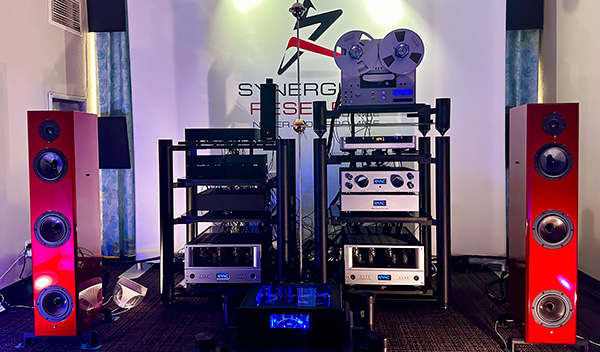From new Stereophile:
"I'd hardly settled into my chair when he (Ted Denny, Synergistic Research) demonstrated the effect of his $1500 "Vibratron," a roughly six-feet-tall metal rod with two baseball-sized spheres, one gold-plated (for warmer sound), one silver (for brighter sound; mix and match to taste). They're resonators that Denney modeled after "forgotten Greek and Roman technology." To hear him tell it, the ancients knew how to use rounded vessels to improve room acoustics and intelligibility.
Next, we were on to the benefits of his MiG SX bidirectional equipment footers, $995 for a set of three, which you can install pointing up or down according to the sound signature you prefer. The MiGs are claimed to "improve nearly every aspect of system performance," starting with a "denser soundfield." I could hear the difference, couldn't I?I told my host I thought I did, but that I wasn't committing to a final opinion."
I always liked Von Schweikert speakers, the association with Synergistic is unfortunate. "No Ted I don't hear it" would have been a better response.
Wasn't the Vibatron featured in Woody Allen's "Sleeper"?.
On the third and last day of the Florida Audio Expo, I realized I hadn't listened to Von Schweikert speakers in donkey's years. With only 35 minutes to spare till closing time, I made my way to the third-floor room where, according to the show literature, I should hear a pair of Von Schweikert...

www.stereophile.com

